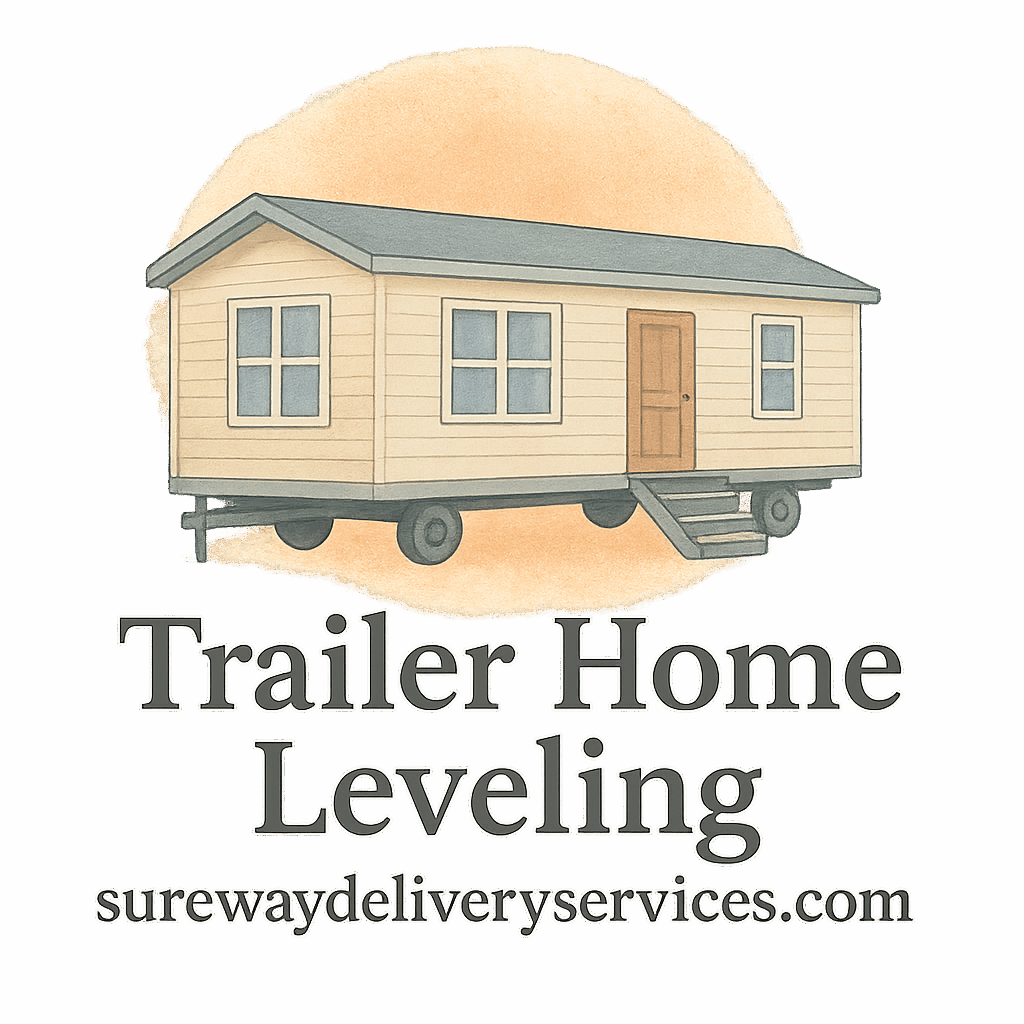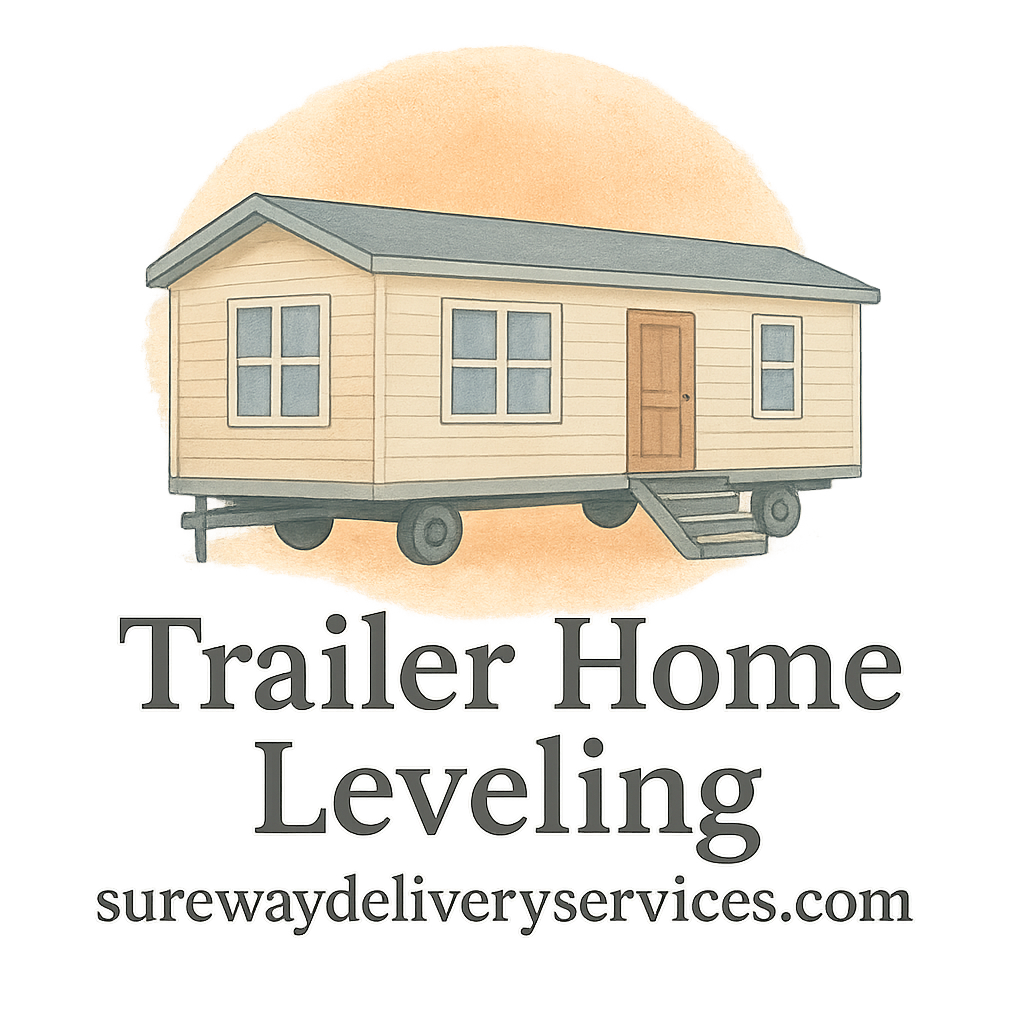Introduction
Ever felt like your trailer home was tilting just a little too much to the left? Or maybe the door keeps sticking for no reason? If that sounds familiar, you’re not alone. Trailer home leveling isn’t just a one-time task—it’s part of a long-term commitment to your home’s stability and comfort.
Whether you’re living in a cozy single-wide or a massive double-wide with custom additions, home leveling is a job you can’t ignore. Let’s explore the five types of trailer homes that need frequent home leveling, why it happens, and what you can do about it.
Spoiler alert: some of these trailers are more high-maintenance than a classic car!
What Is Home Leveling and Why Does It Matter?
The Basics Behind Home Leveling
Home leveling means restoring your trailer to its proper horizontal position. Over time, even the most solidly installed mobile homes can shift, sag, or tilt due to soil movement, aging supports, or added weight.
Learn more about the fundamentals in this guide on home leveling basics and introduction.
Signs That Your Trailer Needs Leveling
Uneven Floors
Feel like you’re walking uphill to the kitchen? That’s a classic sign your trailer’s out of whack.
Doors and Windows Stick
If you’ve gotta wrestle your door open every morning, it’s time for an inspection.
Cracks in Walls
Hairline cracks can be a result of settling, which calls for immediate attention.
Explore more inspection tips here and browse our checklist tag for DIY assessments.
1. Single-Wide Trailer Homes
Why They Frequently Need Leveling
These compact beauties are light, but that’s a double-edged sword. Single-wides are more vulnerable to wind, soil movement, and shifting blocks.
More on this in our trailer details section.
Tips for Maintenance and Inspection
- Inspect your foundation every 6 months.
- Use proper jacks and tools.
- Watch out for water pooling around the base.
Keep your eyes on this category for common trailer leveling issues.
2. Double-Wide Trailer Homes
The Weight Distribution Challenge
Double-wides are like two single-wides merged into one. That means more weight, more potential for imbalance, and more maintenance.
Explore how trailer leveling techniques differ for these big boys.
Cost and Budgeting for Frequent Leveling
Double-wides often cost more to level due to complexity and size. Head over to our guide on cost and budgeting to plan ahead and avoid overspending.
Also, check our tag: price and overcharge to avoid being taken for a ride.
3. Older Model Trailer Homes
How Age Impacts the Foundation
Older trailers = more issues. Materials break down. Support beams sag. And let’s not forget the rusty jacks.
If your home was built pre-1990, it likely needs leveling more often. Visit our trailer maintenance tag for vintage trailer care.
Annual Maintenance is Crucial
Don’t skip that yearly inspection. Use our annual checklist and look out for trailer leveling signs before it becomes a bigger issue.

4. Trailer Homes Installed on Soft Soil
Soil Shifting and Moisture
This is Mother Nature doing her worst. Soft or moist soil causes piers and blocks to sink, leading to uneven trailers in no time.
More details in our inspection section.
Using the Right Tools and Jacks
Make sure you’re using high-quality trailer leveling tools designed for tough soil. Basic jacks won’t cut it on unstable ground.
For a reliable fix, consider hiring pros from our service hiring guide.
5. Customized or Heavily Modified Trailer Homes
The Problem with Added Weight
Adding a porch, second bathroom, or kitchen island? That’s great—until it messes with the structural balance. Modifications often shift weight unevenly, throwing the whole house off level.
Inspection and Leveling Techniques
Always inspect after any major upgrade. Read more about suitable methods and techniques and recommended trailer tips for custom layouts.
Choosing the Right Service for Leveling
Don’t Get Overcharged – Know What You Need
Not all leveling jobs are created equal. Some only need minor tweaks; others require a full jack-and-block session. Understand the difference so you’re not paying extra.
Check out our page on trailer service overcharges.
Look for Packages and Reviews
A solid service package can save you money long-term. Also, don’t forget to check out customer reviews before hiring anyone.
Best Practices to Prevent Frequent Leveling
Follow a Trailer Maintenance Checklist
Consistency is key. Use our downloadable trailer maintenance checklist to stay ahead of trouble.
Regular Inspection and Early Detection
Don’t wait for the floor to sag. Get in the habit of doing routine checks every few months. Read more on trailer inspection tips.
Customer Success Stories and Recommendations
Need inspiration? Dive into real success stories from homeowners who got it right and learn from their recommendations.
Conclusion
If you own one of these five types of trailer homes, frequent leveling isn’t a luxury—it’s a necessity. From single-wides on shaky ground to double-wides that carry the weight of a family, staying on top of trailer home leveling will save you money, stress, and maybe even your back.
Regular inspections, using the right tools, and knowing when to call in the pros can make all the difference. So whether your trailer is new, old, light, or loaded down with add-ons, make leveling a regular part of your maintenance routine.
Need help? Start with the experts at TrailerHomeLeveling.com and explore guides, tips, and reviews to keep your trailer standing tall.
FAQs
1. How often should I level my trailer home?
Most homes need leveling every 1–2 years, but soft soil or modifications may require more frequent adjustments.
2. What’s the average cost to level a trailer home?
Costs can range from $400 to $1,000 depending on size and condition. Learn more here.
3. Can I level my trailer myself?
If you have the right tools and jacks, yes—but for complex jobs, it’s best to hire a pro.
4. What are the signs that my trailer is unlevel?
Look for cracks in walls, sticky doors, slanted floors, or weird noises when walking.
5. Is home leveling covered by insurance?
Not usually unless caused by a specific insurable event like flooding. Check your policy.
6. Can leveling prevent structural damage?
Absolutely. Staying level helps reduce stress on the frame and avoids long-term damage.
7. What’s the best soil type for trailer stability?
Gravel and compacted dirt offer the most support. Avoid installing on loose or marshy ground.


